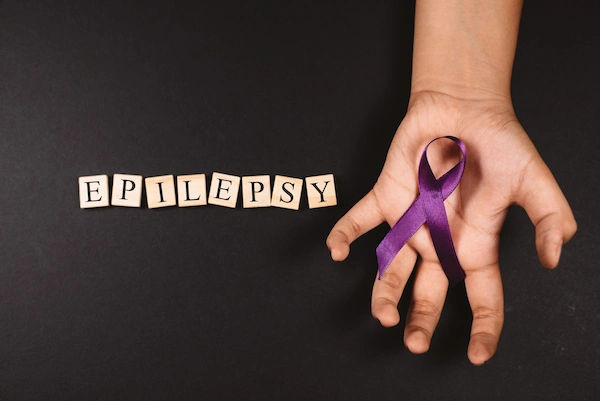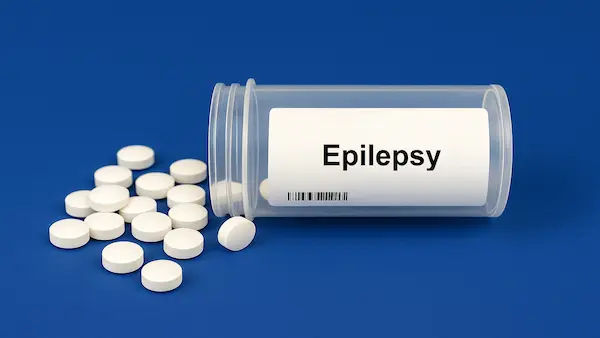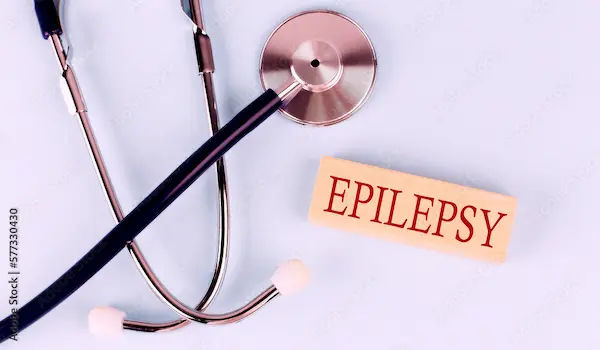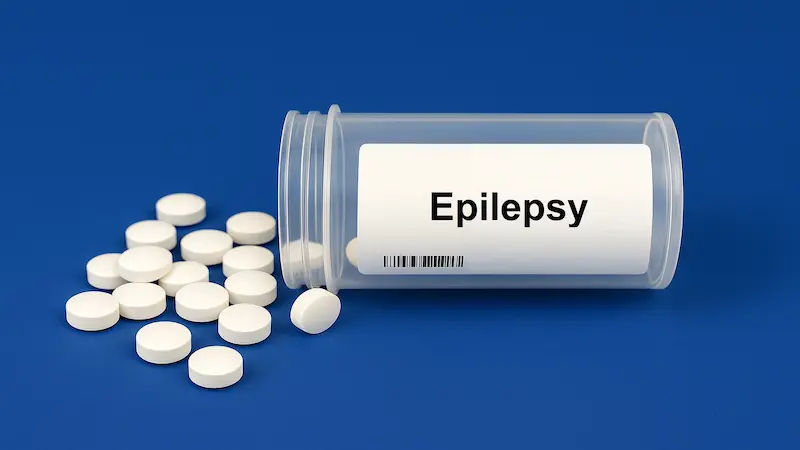Epilepsy: A Guide to Understanding and Action
Learn what epilepsy is, how to provide first aid for seizures, treatment options, and ways to support those living with epilepsy.


Introduction
For the 50 million people worldwide living with epilepsy. If you've ever wondered what epilepsy truly is, how to support someone who has it, you're in the right place. This guide will walk you through the condition of epilepsy, equip you with essential knowledge, and show you how you can become part of a supportive, informed global community. We'll debunk dangerous myths, outline simple first aid steps that can save lives, and explore the latest in treatment and support, empowering you to make a real difference.
Understanding Epilepsy: A Brief Overview
To truly support the cause, it helps to understand the condition itself.
What is a Seizure? The Basics of Brain Activity
A seizure is a sudden, uncontrolled electrical disturbance in the brain. It can cause changes in your behaviour, movements, feelings, and levels of consciousness. Think of the brain as a complex computer; a seizure is like a temporary electrical surge or short-circuit.
Common Causes and Risk Factors
Epilepsy can develop at any age, but it's most commonly diagnosed in childhood and after age 60. Causes can include genetic factors, head trauma, stroke, brain infections (like meningitis), or prenatal injury. In about half of all cases, no specific cause can be identified.
Diagnosis and Treatment Options
Diagnosis typically involves a detailed medical history, an EEG (electroencephalogram) to measure brain waves, and imaging scans like an MRI. Treatment is highly effective for most. Options include:
- Anti-seizure medicines: The most common first-line treatment.
- Surgery: If seizures originate from a single, identifiable part of the brain.
- Dietary therapies: Such as the ketogenic diet, often used for children.
- Devices: Like vagus nerve stimulators (VNS).
If you or a loved one is experiencing symptoms that could be seizures, it's crucial to consult a doctor for a proper diagnosis. You can consult a neurologist online with Apollo24|7 for an initial evaluation and guidance.
Consult a Neurologist
First Aid for Seizures: What to Do (and What Not to Do)
Knowing how to respond is empowering and can prevent injury.
- First Aid for Tonic-Clonic (Convulsive) Seizures
- Stay calm. Time the seizure.
- Ease the person to the floor and clear the area of hard or sharp objects.
- Turn them onto their side (recovery position) to help keep their airway clear.
- Cushion their head with something soft.
- Do not restrain them or put anything in their mouth.
- Call for emergency medical help if the seizure lasts longer than 5 minutes, if another seizure follows immediately, or if the person is injured, pregnant, or has diabetes.
Recognising Focal (Partial) Seizures
These can be subtle. The person may appear confused, dazed, or unresponsive. They may not need medical intervention, but your role is to stay with them, speak calmly, and guide them gently away from any potential danger until the episode passes.
Living Well with Epilepsy: Beyond the Diagnosis
A diagnosis of epilepsy is life-changing, but it doesn't have to be life-limiting. With proper treatment, most people with epilepsy can lead full, active lives. Managing triggers (like lack of sleep, stress, or flashing lights), adhering to medication, and having a strong support system are key. Regular follow-ups are essential, and services like Apollo24|7's home collection for blood tests can make monitoring medication levels or overall health more convenient.
Conclusion
Epilepsy is a condition that affects millions worldwide, but with the right knowledge, care, and support, it can be managed effectively. Understanding what seizures are, how to respond during an episode, and the importance of ongoing treatment helps reduce fear and stigma. People with epilepsy can and do lead full, active lives when supported by informed families, communities, and healthcare systems. By spreading awareness, challenging myths, and practising compassion, we can all play a role in making the world safer and more inclusive for those living with epilepsy.
Consult a Neurologist
Consult a Neurologist

Dr. Ganeshgouda Majigoudra
Neurologist
10 Years • MBBS, MD ( GENERAL MEDICINE) DM (NEUROLOGY)
Bengaluru
Apollo Clinic, JP nagar, Bengaluru

Dr. Uddalak Chakraborty
Neurologist
8 Years • MBBS, MD(GENL.MED.),DM(NEUROLOGY)
Kolkata
MCR SUPER SPECIALITY POLY CLINIC & PATHOLOGY, Kolkata

Dr. Avinash Gupta
Neurologist
12 Years • MBBS, DNB - Neurology
Bilaspur
Apollo Hospitals Seepat Road, Bilaspur
(150+ Patients)
Dr Venkata Sumanth Chava
Neurologist
4 Years • "• DM neurology at Jawaharlal Nehru medical college, KLE academy of higher education and research, Belagavi. • MD internal medicine at JSS medical college, JSS academy of higher education and research, Mysuru. • MBBS at Prathima institute of medical sciences, Dr NTR university of health sciences, Karimnagar."
Hyderabad
Apollo Hospitals Financial District, Hyderabad

Dr. Andugulapati Santosh Sriram
Neurologist
6 Years • MBBS, MD, DM (NEUROLOGY)
Hyderguda
Apollo Hospitals Hyderguda, Hyderguda
Consult a Neurologist

Dr. Ganeshgouda Majigoudra
Neurologist
10 Years • MBBS, MD ( GENERAL MEDICINE) DM (NEUROLOGY)
Bengaluru
Apollo Clinic, JP nagar, Bengaluru

Dr. Uddalak Chakraborty
Neurologist
8 Years • MBBS, MD(GENL.MED.),DM(NEUROLOGY)
Kolkata
MCR SUPER SPECIALITY POLY CLINIC & PATHOLOGY, Kolkata

Dr. Avinash Gupta
Neurologist
12 Years • MBBS, DNB - Neurology
Bilaspur
Apollo Hospitals Seepat Road, Bilaspur
(150+ Patients)
Dr Venkata Sumanth Chava
Neurologist
4 Years • "• DM neurology at Jawaharlal Nehru medical college, KLE academy of higher education and research, Belagavi. • MD internal medicine at JSS medical college, JSS academy of higher education and research, Mysuru. • MBBS at Prathima institute of medical sciences, Dr NTR university of health sciences, Karimnagar."
Hyderabad
Apollo Hospitals Financial District, Hyderabad

Dr. Andugulapati Santosh Sriram
Neurologist
6 Years • MBBS, MD, DM (NEUROLOGY)
Hyderguda
Apollo Hospitals Hyderguda, Hyderguda
More articles from Epilepsy
Frequently Asked Questions
What is the difference between epilepsy and a seizure?
A seizure is a single event of abnormal electrical activity in the brain. Epilepsy is a chronic neurological disorder characterised by a tendency to have recurrent, unprovoked seizures. Having one seizure doesn't mean you have epilepsy.
Can epilepsy be cured?
While there is no universal 'cure,' epilepsy can be effectively managed. For many, especially children, seizures may eventually stop completely. For others, medicines or surgery can provide complete seizure control, which is considered a functional cure.
What are common triggers for epileptic seizures?
Common triggers include lack of sleep, extreme stress, flashing lights (in a specific type called photosensitive epilepsy), alcohol or drug use, skipping meals, and specific times in the menstrual cycle for some women.
Is epilepsy genetic?
Some types of epilepsy have a genetic component, meaning they can run in families. However, most children of parents with epilepsy do not develop the condition. It's a complex interplay of genes and other factors.
Can people with epilepsy drive?
Laws vary by country and state. Typically, a person must be seizure-free for a specific period (e.g., 6 months to a year) to be eligible for a driving licence. It's essential to check local regulations.




